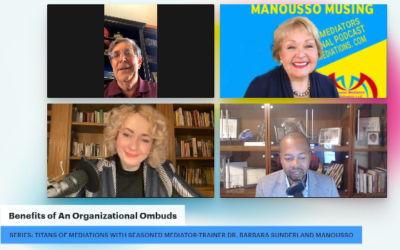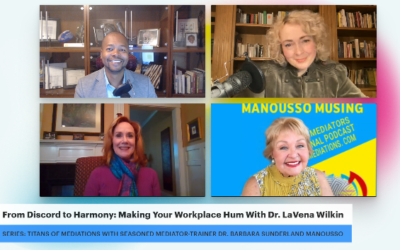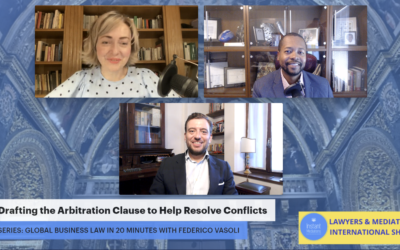Mediation As An Initial Option to Many Legal Disputes
A question I typically ask parties at the beginning of a mediation session is whether or not they had mediated before. The common response is no. But when it is a yes, I often learn that the party had previously participated at mediation at the direction of their attorney and/or by order of a court.
In the jurisdictions I am familiar with, parties typically do not initially look for mediators when they run into legal disputes. They seek out lawyers, who in turn lead them to the mediation table. Or, if they are pro se and represent themselves, they schedule mediation only after being directed by a court. This process makes sense, and in many cases, is the proper course of action, because sometimes only an attorney can properly help a party navigate their legal options.
But while reasons exist to seek litigation first, a simple explanation for why parties do not first seek out a mediator pre-litigation to help them address their legal disputes, is because the general public is not aware of what mediators actually do and how they are available to help in the beginning of the dispute.
If you ask most people in the general public, based on the term “mediator” alone, many will vaguely say that a mediator is someone who helps people “reach compromise”, or “helps parties settle their differences.” A person who Googles may even contribute that mediations are confidential, that the mediator is neutral, and that in most places, mediations are legally binding. But very few people will be aware of other key attributes of mediations or of mediators. For example, they may not realize how sacrosanct the practice of mediator impartiality is, especially when contrasted from the advocacy they typically see in the courts. They may have heard of Judge Judy, but have they heard of the show Mediator Mandy? Hint, it does not exist! Or they may not realize just how much responsibility rests upon mediation parties themselves to negotiate in “good faith” in order to reach understanding and enter settlement, something very different from the burden litigating parties have to prove their case to a Judge or Jury. This is especially true given the zero-sum negotiation tactics popularized in today’s culture. Think Mr. Wonderful on the television series, Shark Tank.
In a litigious world where everyone is trying to get theirs, sometimes at the expense of anybody else, it’s no wonder why the message of peace-making or problem-solving approaches to conflict resolution do not appear among the first solutions for addressing legal disputes.
And mediators themselves do not always help promote the idea of mediation first, or preach it as an invaluable tool for helping address legal conflicts. For example, in Texas, mediators sometimes miseducate the public by pushing developments like “drive-by mediation,” while not explaining to the public that agreements derived from such processes are not true mediations when they lack mediator participation. Or in another extreme, we hurt the mediation message by traumatizing parties so they do not see value or benefit in working out differences at the mediation table. For example, years ago as an attorney attending a family mediation and representing a young parent, I recall the negative experience where the mediation turned into a literal shouting match between my client and the mediator, resulting in the mediator slamming the door of our caucus room as the mediator exited to go visit with the other side. The case did eventually get settled, but I recall the damage that was done in an instance when my client (and I) felt the mediator had lost impartiality. We can do better. Every mediation experience is practice for the next mediation experience, and whether a party will walk away with a belief that they were heard, regardless of the outcome.
To members of the general public. Understand this: mediation is effective and it does help dispose of most cases when it’s tried. It’s cheaper, quicker, and less intimidating than attending court. However, it is not for every case. Some cases need to go to court in the first instance. But initial mediation can be considered as an alternative to dispute resolution in the beginning of a case, especially when it can help narrow down the real bones of contention between the parties (sometimes, people only learn of the real contested issue and appreciate their real differences after speaking with the opposition through a neutral third party).
Parties are encouraged to seek legal advice before attending mediation. But mediation can then be a great service for parties to use straightaway in place of the initial lawsuit.



